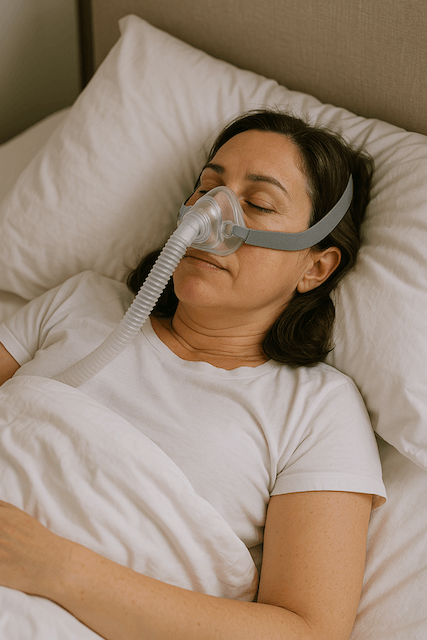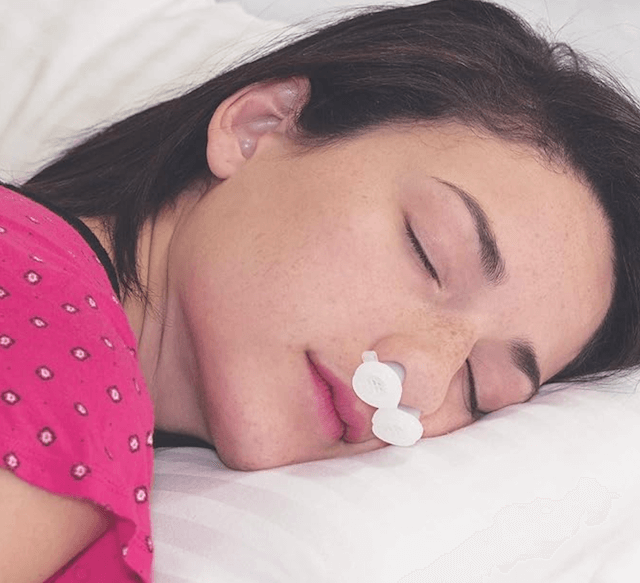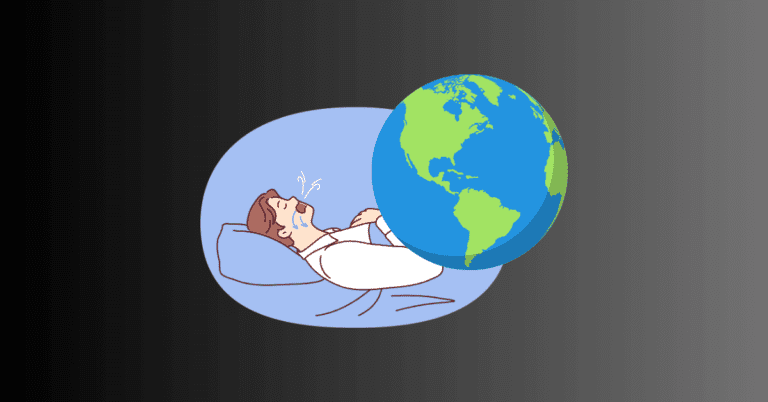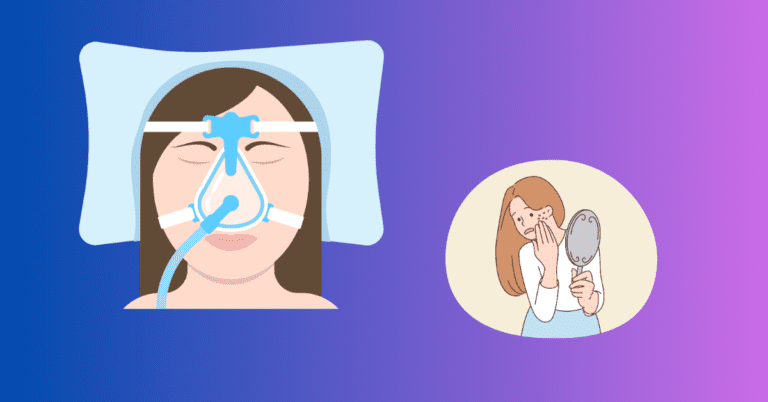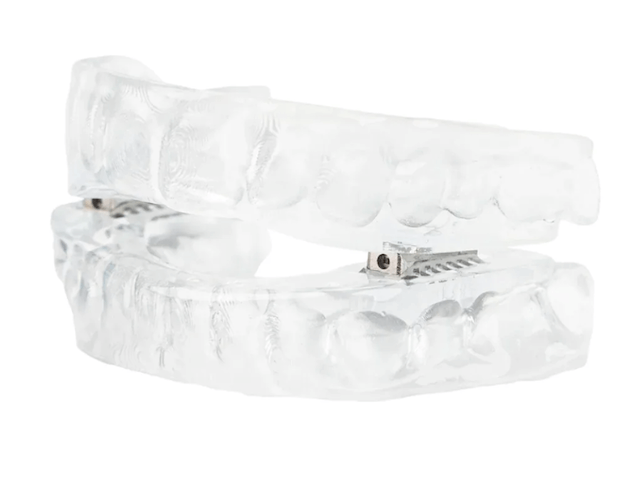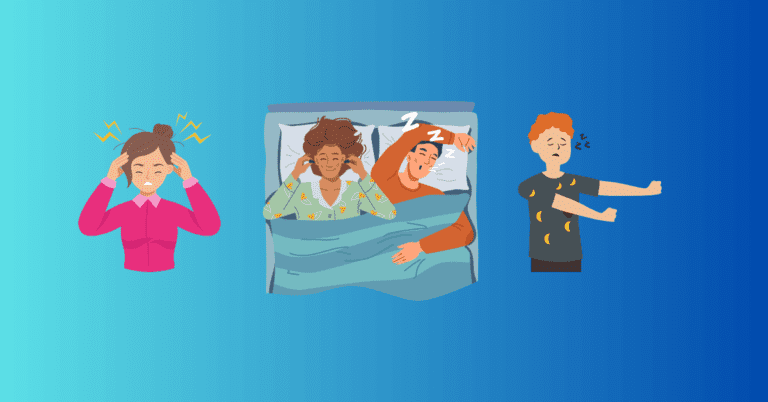Should I Use CPAP When I Am Sick?
Jeremy Smith is a long-term CPAP user and sleep apnea advocate. After being diagnosed with severe obstructive sleep apnea, he created ByJeremySmith.com to help others navigate CPAP therapy through personal stories, gear reviews, and practical advice.
Getting sick when you rely on a CPAP machine can be challenging. Whether you’re dealing with a cold, flu, or seasonal allergies, the thought of using your CPAP while feeling congested or having a sore throat might seem a bit of a challenge.
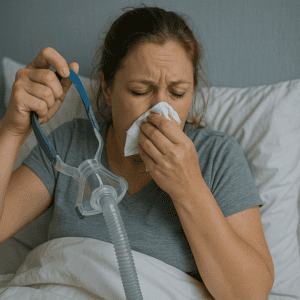
I was recently sick and kept waking up coughing into my mask! But is it safe to continue your CPAP therapy? I think so.
Let’s break down when it’s okay to keep using your CPAP and when you might be considering throwing it across the room!
Why You Shouldn’t Skip CPAP Therapy
Even if you’re under the weather, using your CPAP is usually the right call.
❗ What Happens If You Skip?
Even when you’re under the weather, keeping your CPAP therapy going is crucial. Why? Untreated sleep apnea can worsen your symptoms and make it harder to recover. When you’re congested or coughing, stopping CPAP use can lead to:
- 😴 Interrupted Sleep – Apneas increase without therapy, fragmenting sleep.
- 🫁 Poorer Breathing – Congestion worsens airway collapse.
- 🪫 Daytime Fatigue – Lack of restful sleep adds to illness exhaustion.
🟢 Keep your airways open and your body healing. Sleep is medicine.
🔗 Related: Can You Die From Sleep Apnea?
🛠️How to Use CPAP While Sick
If you’re feeling well enough to use your CPAP, here are a few tips to make it more comfortable:
1. 🌫️Adjust Humidity Settings
Nasal congestion can make breathing through your CPAP difficult when you’re sick. One way to relieve this is by adjusting your humidifier settings. Increasing the humidity level can help soothe dry, irritated airways and ease congestion. However, this might not always be possible, and it depends on the machine.
However, be cautious—too much humidity can worsen nasal congestion for some people. It’s best to experiment with minor changes in the settings and see what works best for you.
2. 😷Use a Full-Face Mask
Switching to a full-face mask might be more comfortable if you’re struggling to breathe through your nose due to congestion. Full-face masks allow you to breathe through both your nose and mouth, making it easier to maintain your CPAP therapy when your nasal passages are blocked.
🛍️ Check out my Nasal vs Full-Face Mask guide (coming soon)
3. 🧼Keep Your Equipment Clean
Being sick means you’re likely dealing with more bacteria and viruses, so keeping your CPAP machine, mask, and tubing clean is more important than ever.
Wash your equipment daily using mild soap and water to reduce the risk of spreading germs and worsening your illness.
Consider using a CPAP cleaner like the SoClean or Lumin for a deep clean. While these products aren’t necessary, they offer convenience and peace of mind by sanitizing your equipment more effectively.
💬 Consider using CPAP mask liners too — they catch moisture and make cleaning easier.
4. 💧Nasal Saline Rinse
A nasal saline rinse, like a neti pot or saline spray, can help clear your nasal passages before bedtime.
This will reduce congestion and make it easier to use your CPAP. Make sure to do this at least 30 minutes before using your machine to ensure your nasal passages are clear.
5. 🔥Use Heated Tubing
Heated CPAP tubing can prevent excess moisture build-up, often leading to a condition known as “rainout” (water droplets forming in the tubing).
Heated tubing keeps the temperature steady, reducing condensation and keeping airflow consistent.
🚨When to Skip CPAP (Temporarily)
There are a few situations when it might be best to take a break from CPAP therapy or consult your healthcare provider:
❌ Situations Where CPAP Might Be a Bad Idea:
- 🤕 Severe Sinus Infection: If you have a severe sinus infection or are dealing with facial pain, using CPAP may not be comfortable. Talk to your doctor about whether it’s safe to continue therapy.
- 🫁 Chest Infection or Severe Cough: CPAP can sometimes aggravate a severe cough or chest infection. If you’re having trouble breathing, it’s best to check with your doctor.
- 🤢 Severe Nausea or Vomiting: Using CPAP with severe nausea or vomiting can increase the risk of aspiration. In this case, avoid using your CPAP until you feel better.
⏱️ When in doubt, pause and talk to your provider.
🛌 Final Thoughts (from a Fellow CPAP User)
Continuing CPAP therapy while you’re sick can help you recover faster by ensuring you’re still getting good-quality sleep.
Adjustments like using a full-face mask or increasing humidity can help you keep your therapy on track without adding more discomfort.
Always listen to your body and consult with your healthcare provider if you’re unsure whether to use your CPAP during an illness.
I hope you get well soon if you’re sick and reading this. 🙂
Disclaimer: The content on this blog is for informational and educational purposes only and is not a substitute for professional medical advice. Always speak with your doctor or sleep specialist before starting, stopping, or changing any treatment or therapy related to sleep apnea or CPAP use.
